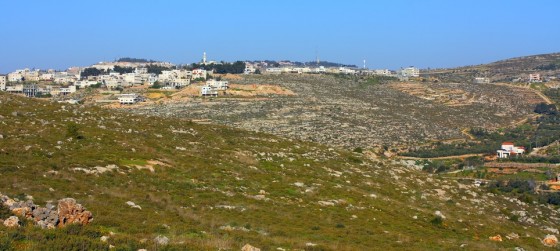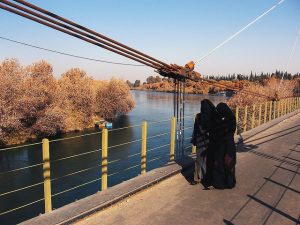 Israel’s high court has ordered the state to come up with an alternative to a separation fence that would have threatened valuable agricultural land in the West Bank. The fence was planned for an area near Battir that Palestinians have been farming for hundreds of years using traditional techniques, but in a historic provisional ruling, the court has given the state 90 days to establish a Plan B.
Israel’s high court has ordered the state to come up with an alternative to a separation fence that would have threatened valuable agricultural land in the West Bank. The fence was planned for an area near Battir that Palestinians have been farming for hundreds of years using traditional techniques, but in a historic provisional ruling, the court has given the state 90 days to establish a Plan B.
Roughly 5,000 residents of Battir own 3,000 durnams of land on the Israeli side of the green line, but The Rhodes Armistice Agreement of 1949 signed after the 1948 war gave Palestinians the right to continue tending their crops in the area.
“Water from natural springs burbles in the ancient Roman stone aqueduct as it carries water downward to this village’s ancient terraces. Palestinian families grow olives, cabbage and eggplant today the same way they did more than 2,000 years ago,” wrote Linda Gradstein from The Media Line.
An appeal to halt construction of the barrier was rejected, Gilat Bartana of Friends of the Earth Middle East (FoEME), one of the most successful environmental advocacy groups in the region, told the paper.
FoEME and the villagers each filed petitions warning that the fence would destroy the terraced land and disrupt a way of life that has persisted for hundreds of years.
The High Court of Justice evaluated the petitions last Thursday, Haaretz reports, resulting in a historic provisional ruling that protects Palestinian farmers from losing their land.
“We are convinced that due to the unique nature of the area under discussion there is a need for the security officials to reconsider, in particular as regards the nature of the barrier and security arrangements of the problematic areas,” the High Court Justices decided last week.
Israeli’s Department of Defense argued that the separation barrier is necessary to curtail terrorist activity, though villagers argue that no such need exists.
“We are delighted with the decision of the court and we trust that this time the military will reconsider security options based on the advice of heritage experts, so that the balance of interests can be drawn that both protect the integrity of the Battir landscape, and find alternative security means to a physical barrier,” said Gidon Bromberg, Israeli Director of FoEME.
FoEME, Battir and the Nature and Parks Authority have 15 days to respond to the alternative proposed by the state at the close of 90 days.
:: Haaretz



